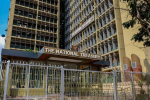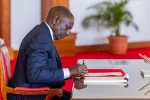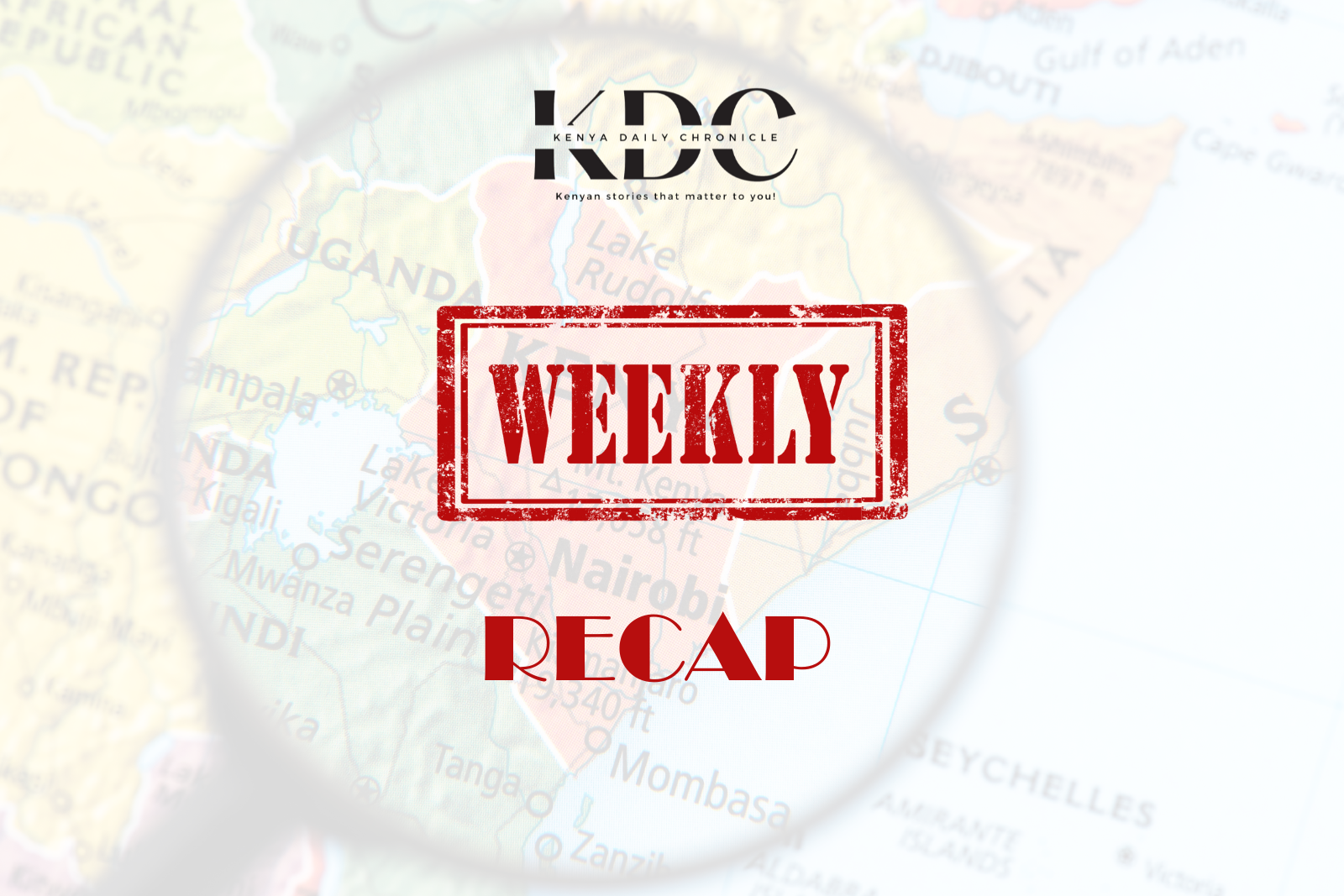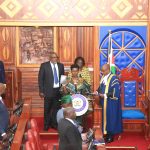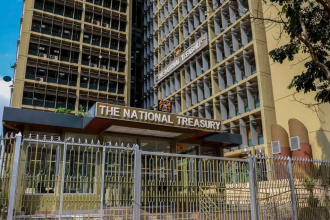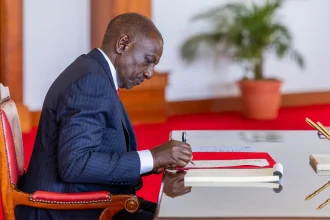From confusion over Kenya-China debt to JB Muturi’s Russian ‘exposé’ and serious allegations of diplomatic misconduct, the Weekly Recap shows Kenya’s political and economic landscape remains dynamic, reflecting both domestic priorities and significant international pressures.
Here is this week’s analysis of the top Kenyan news stories, by Kenya Daily Chronicle.
Ruto Woos Mt. Kenya in Development Tour
President William Ruto embarked on a high-profile development tour in the Mt. Kenya region, a politically significant area historically pivotal in Kenyan elections. The tour focused on accelerating the Kenya Kwanza administration’s development agenda, with Ruto emphasizing infrastructure, economic growth, and inclusive policies.
The tour underscored Ruto’s efforts to maintain political influence in a region that played a crucial role in his electoral victory. His engagements centred on development pledges, particularly in infrastructure, agriculture, and economic empowerment programs aimed at appeasing both leaders and citizens amid growing economic concerns.
However, his tour also came at a time when local leaders have voiced concerns over unfulfilled promises and the economic downturn affecting farmers and traders in the region. The visit was both a reassurance measure and a political move to consolidate support ahead of the 2027 elections, especially as opposition figures seek to capitalise on regional discontent.
Confusion Over Kenya-China Debt Discussions
Uncertainty looms over the status of Kenya’s debt negotiations with China following conflicting reports from government officials. While Treasury officials, who were in China this week, initially indicated ongoing discussions on possible restructuring, President Ruto’s administration later downplayed these claims, asserting that Kenya is committed to repaying its obligations without seeking new loans.
An initial social media post hinting at restructuring was quickly amended, with the Kenyan finance ministry clarifying that the focus was on trade and investment ties, not debt relief.
This mixed messaging has fuelled speculation about the country’s financial health, particularly as debt servicing obligations to China remain substantial. Analysts suggest that Kenya is navigating a delicate diplomatic and financial balancing act, trying to assure both domestic and international stakeholders of its fiscal responsibility while exploring options to ease its debt burden.
President Ruto has repeatedly vowed to avoid defaulting on external debt, a promise that hinges on managing Kenya’s substantial obligations to China, which constitute a significant portion of the country’s external debt.
Justin Muturi Alleges Coercion Over “Russian Deal”
Former Cabinet Secretary Justin Muturi’s claims that he faced undue pressure over a Russian-linked deal have raised questions about the transparency and influence surrounding Kenya’s procurement and diplomatic engagements.
Muturi’s allegations suggest potential external and internal interference in government transactions, highlighting broader concerns about governance and corruption.
While details of the alleged coercion remain unclear, the claims have sparked renewed scrutiny over the handling of international agreements, particularly in sectors involving strategic resources and foreign investments.
The government may need to provide further clarity to mitigate speculation and maintain public confidence in its dealings. With Russia’s global presence under scrutiny, any Kenyan entanglement could complicate relations with Western partners like the U.S.
U.S. Imposes Tariffs on Kenyan Exports
Kenyan businesses exporting to the U.S. are facing fresh hurdles after Washington imposed a 10 per cent reciprocal tariff, a move that threatens to disrupt trade relations and impact key industries such as textiles and agricultural exports.
The decision, linked to broader U.S. economic and trade policy shifts, could undermine Kenya’s efforts to expand its export markets and attract foreign investment. Government officials are expected to engage in diplomatic efforts to seek exemptions or negotiate more favourable terms.
The development also raises questions about Kenya’s reliance on U.S. markets and the need to diversify its trade partnerships to mitigate such external shocks.
This move also threatens Kenya’s trade benefits under the African Growth and Opportunity Act (AGOA), which has facilitated duty-free access to the U.S. market for Kenyan goods like textiles and agricultural products.
Ruto’s government faces a diplomatic test: negotiating with the U.S. to mitigate the damage while exploring alternative markets—perhaps deepening ties with China or the EU. The timing, amid global trade tensions, leaves Kenya vulnerable yet underscores the need for agile economic strategies.
Worker Abuse Allegations at Kenyan Embassy Gain Traction
Reports of abuse of migrant workers by Kenyan embassy officials have ignited public outcry and diplomatic scrutiny. The cases, where women seeking employment abroad speak of sex demands from foreign mission workers, have put the government on the spot over its handling of labour rights.
Human rights organisations and labour unions have called for a thorough investigation and accountability measures to ensure that affected individuals receive justice.
The controversy also underscores the broader challenge of ensuring ethical labour practices within Kenyan diplomatic missions and could prompt a review of oversight mechanisms to prevent similar incidents in the future.
The scandal threatens to undermine Kenya’s labour export initiative aimed at addressing domestic unemployment, with over a million Kenyans entering the job market annually.
If substantiated, the allegations could damage Kenya’s reputation as a reliable labour supplier, especially in Europe and the Middle East, where agreements like the one with Germany are in play.
The government must act swiftly to investigate and address these claims, balancing its diaspora ambitions with accountability. Failure to do so risks alienating a workforce already sceptical of state promises amid rising abductions and economic hardship.
